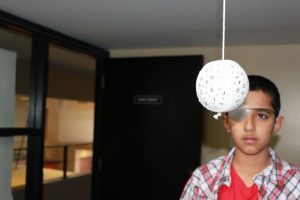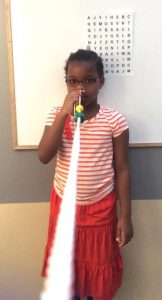Who Is A Candidate?
Problems Vision Therapy Can Correct

- Coordination
- Focusing and tracking
- Comprehension
- Spatial judgment
- Visual discrimination
- Visual memory
- Lazy eye
- Crossed eyes
- Double vision
- Convergence insufficiency
- Visually related reading and learning disabilities
Can Vision Therapy Help You?
There are visual conditions that are managed best by optometric vision training, rather than or in addition to glasses or contact lenses. Occasionally these types of problems occur shortly after birth, other times they can be caused by trauma, and they can also occur from weakening as a person ages.
 Do you see better at some times than other times? If so, this suggests that your vision imperfection is not fixed and that muscle weakness, fatigue, and coordination problems may be part of the overall problem. The first step is to get a comprehensive eye exam, so you know if there is anything else causing your problems. If your Optometrist rules out conditions like cataracts, glaucoma, or retinopathy, then vision training may be a good option for you. Patients learn to control their eye muscles with vision training and are able to overcome many kinds of vision problems pertaining to eye muscles, including eye teaming, depth perception, tracking, and eye-hand coordination.
Do you see better at some times than other times? If so, this suggests that your vision imperfection is not fixed and that muscle weakness, fatigue, and coordination problems may be part of the overall problem. The first step is to get a comprehensive eye exam, so you know if there is anything else causing your problems. If your Optometrist rules out conditions like cataracts, glaucoma, or retinopathy, then vision training may be a good option for you. Patients learn to control their eye muscles with vision training and are able to overcome many kinds of vision problems pertaining to eye muscles, including eye teaming, depth perception, tracking, and eye-hand coordination.
People requiring Vision Therapy are diagnosed by optometrists but symptoms may also be recognized by teachers, learning assistants, parents, doctors and occupational therapists. All eye doctors can detect these problems along with a specific history of symptoms the patient is experiencing. However, many visual conditions could have been missed during earlier vision testing if the child didn’t have an examination that tested beyond 20/20 vision. Developmental Optometrists perform an in-depth examination of the visual system, using a holistic approach. Furthermore, only a few eye doctors have the specialized equipment to conduct training.
Eye exams start at 6 months of age and some of the first signs of visual development problems can be recognized even at this stage (for example a lazy eye). However, generally, symptoms will be noticed at school age (4-5 years old).
